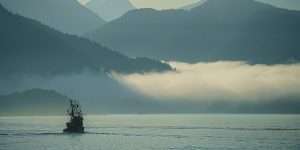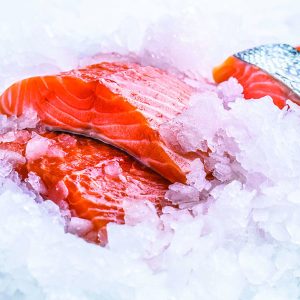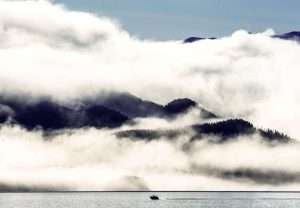Iceland: Committed to Sustainability for the Whole Marine Ecosystem

Sealaska announced in October that it has plans to acquire equity in two leading Icelandic seafood companies – IceMar and AG Seafood.
Some might wonder why an Alaska Native Corporation in Southeast Alaska would invest in Iceland.
The reality is that fisheries in Alaska and Iceland share important qualities when it comes to seafood. Their shared approach to responsible fisheries management aligns with Sealaska’s work to foster ocean health by growing global demand for delicious, sustainably sourced seafood – including wild seafood from Alaska.
Like Alaska, Iceland has a rich heritage as a fishing and fish-processing region, with some of the best products anywhere. Fishing remains one of the central elements of its economy, and sustaining its most valuable resource for the long term is critically important to the island nation.
As a result, Iceland’s government uses science to carefully manage its fisheries and make its fishing economy one of the most technologically advanced, efficient and sustainable in the world. Iceland was one of the first countries to set harvest-control rules for its marine stocks, and its catch-limitation system is the foundation of its fisheries management. It also deploys special measures to protect small fish and imposes clear rules on discards and by-catch. All fish caught in Iceland must be landed and sold in markets, a rule that reduces waste and improves tracking and accountability.
In Iceland the Marine & Freshwater Research Institute, an independent institution governed by the Ministry of Fisheries, researches the ocean’s commercial stocks and advises the government on fisheries. The institute is the main organization in Iceland conducting marine and fisheries research.
Key to Iceland’s approach is the belief that supporting communities and their economies is as important to sustainability as natural-resource conservation. In addition to supporting fishermen, the nation supports related industries such as processing, technology and software.
That means Iceland supplies the world with some of the best processing equipment anywhere. State-of-the-art systems built in Iceland use precise water jets and other technology to ensure more accuracy, less waste and higher yield to make the most of every fish. This video from Marel offers an overview. Up to 80 percent of Icelandic fish are used, compared with a world average of just 50-60 percent.
IceMar is an award-winning sales and marketing business that sells premium seafood from Iceland all over the world. Its products are certified by the Marine Stewardship Council and the Aquaculture Stewardship Council. AG Seafood is a highly efficient processor of cod, haddock and various species of wild flatfish.
Investing in Iceland advances Sealaska’s goals to bring the best seafood to the world, efficiently and responsibly. Having a presence in Iceland opens even more parts of the globe to wild Alaska seafood, and it gives Sealaska the ability to offer top-quality products from Iceland as well.
More information on Iceland’s approach to responsible fisheries can be found on the government’s website.










 Previous
Previous